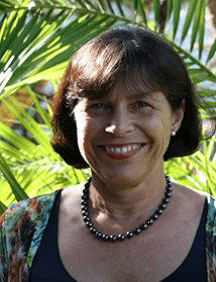Our August immunologist of the month is Professor Monika Maria Esser (born in Cologne, Germany). Prof. Esser is a physician-scientist who was appointed as Head of the National Health Laboratory Service (NHLS) Immunology Unit, Medical Microbiology, Tygerberg Hospital at Stellenbosch University in 2005 (and is retiring this year). She has been a Paediatric Rheumatology Certified Consultant for Paediatric Immunology Clinic since 1991 and Rheumatology Clinic since 1995. She completed her medical degree in 1978 from the University of Cape Town, and specialised in Paediatrics at Stellenbosch University. She then further sub-specialised in Paediatric Rheumatology (Registration in the Category Independent Practice) in 2007.
Position and Research Institute: Co-Principal Investigator of Study into Genetic Basis of Inherited Immunodeficiencies, Department of Genetics and Molecular Medicine, Stellenbosch University
What are your research interests and why ? Genetic and functional definition of primary immunodeficiencies and immune dysregulations with a special area of interest in Mendelian susceptibility to Tuberculosis (MSMD). This research equates to individual “human experiments” of the immune system and where abnormal pathways cause dysfunction in real life conditions. Identifying known and novel genes and pathways will ultimately lead to targeted and improved treatment options for patients.
Why did you become an immunologist ? My fascination with Immunology started early on in my medical career. I was fortunate to work for some time in laboratory research in the US in the Infectious Diseases Unit of St Louis Children’s Hospital, before starting my registrarship in Paediatrics in South Africa. “Re-searching” reasons for severe and unusual infections became a part of my training and continued from there. My Clinical Immunology practice as a qualified paediatrician started with looking at the different immune response in neonates. This expanded to looking at children with primary (genetic) immune deficits and it evolved into looking at potential secondary immune disorders with the HIV Exposed Uninfected Infant study which we piloted at Tygerberg Hospital. My accreditation in the subspecialty of Paediatric Rheumatology expanded the clinical practice scope and investigation to autoinflammatory and autoimmune disorders.
The need to establish a local platform for genetic investigation of children and adults with immune defects and dysregulations led to the formation of a multidisciplinary platform at SU – the Primary Immunodeficiency Diseases Genetic Network (PIDDGEN) in 2013. This research and the related clinical work, I plan to continue to support after my retirement.
As founder member of the African Society for Primary Immunodeficiency Diseases (ASID) I have had the very enriching and humbling experience of working and meeting with fellow Immunologists from across Africa. Collecting data on PID prevalence and patterns from South and other African countries has been another research focus. These diseases certainly are not as rare as we once thought, and every patient teaches us new lessons.
How has your research contributed to better understanding your research area? South Africa has many current and emergent health care challenges, both with infectious and with non-communicable diseases. I hope that my small contribution has created more awareness and better treatment for genetic and secondary causes of immune deficit/dysregulation amid our infectious disease epidemics in South and other African countries.
What have your biggest difficulties been so far in your research? Challenges are opportunities waiting to be explored. I would like to see better research access, support and mentoring for Science and medical students so that we can nurture scientific questioning and translate it to better care in the clinics. The goal should be prevention of disease through improved understanding of how our immune system is shaped by genes and modified by our individual environment.
I look forward to continuing the journey.
Interview by Dana Savulescu











